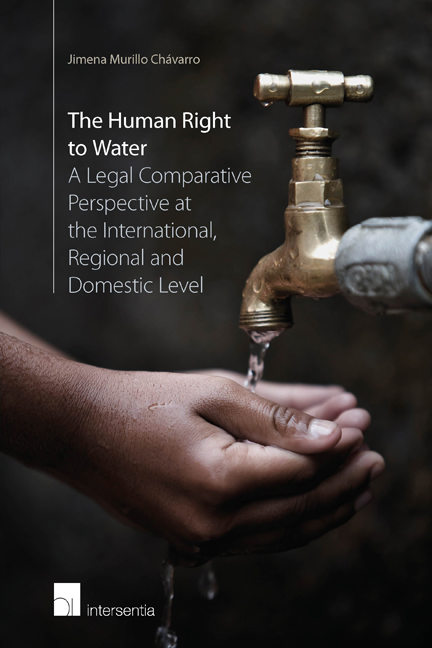 The Human Right to Water
The Human Right to Water Book contents
- Frontmatter
- Dedication
- Contents
- List of Abbreviation
- Table of Cases and Other Materials
- Table of Treaties and Other Instruments
- Chapter 1 General Introduction
- Chapter 2 Emergence, Definition and Core Content of the Human Right to Water
- Chapter 3 Recognition of the Human Right to Water at the International Level
- Chapter 4 Recognition of the Human Right to Water at the Regional Level
- Chapter 5 Recognition of the Human Right to Water at the Domestic Level: a Case Study Approach
- Chapter 6 Extraterritorial Application of the Human Right to Water in a Transboundary Watercourse Context
- Chapter 7 General Conclusions
- Bibliography
- Index
Chapter 6 - Extraterritorial Application of the Human Right to Water in a Transboundary Watercourse Context
Published online by Cambridge University Press: 15 December 2017
- Frontmatter
- Dedication
- Contents
- List of Abbreviation
- Table of Cases and Other Materials
- Table of Treaties and Other Instruments
- Chapter 1 General Introduction
- Chapter 2 Emergence, Definition and Core Content of the Human Right to Water
- Chapter 3 Recognition of the Human Right to Water at the International Level
- Chapter 4 Recognition of the Human Right to Water at the Regional Level
- Chapter 5 Recognition of the Human Right to Water at the Domestic Level: a Case Study Approach
- Chapter 6 Extraterritorial Application of the Human Right to Water in a Transboundary Watercourse Context
- Chapter 7 General Conclusions
- Bibliography
- Index
Summary
INTRODUCTION
Human rights create a number of state's obligations particularly towards individuals located within their territory. Additionally, it is considered that regarding economic, social and cultural rights (ESC rights) states also have obligations towards other states or individuals located outside their territories. As a result, both territorial (domestic) as well as extraterritorial obligations emerge from ESC rights. The latter obligations derived from the main duty to provide international assistance and cooperation for the full realisation of such rights. Given that the human right to water is an ESC right, extraterritorial obligations also emanate from this right.
The human right to water is a right that requires a precise element for its implementation: freshwater. However, freshwater resources are not static; they are flowing and crossing international boundaries. With approximately 300 rivers, 100 lakes and a number of aquifers shared by two or more states, international cooperation is required for the management of such resource. Likewise, freshwater resources are unevenly distributed; this situation and the relative scarcity of water resources have a direct impact on a state's capacity to realise the human right to water on its own territory. As a matter of fact, the fate of the human right to water is in many countries inextricably connected to the (in)action of other states, undermining the role of a domestic state acting alone. The difficulty to confine freshwater resources in each state marks the relevance of international cooperation and assistance for the implementation of the human right to water or the extraterritorial obligations, particularly when the realisation of this right depends on international watercourses.
International watercourses pose the problem that states can within their own borders, this means without necessarily occupying another state or without controlling individuals in another state, violate the human right to water in other riparian states, by reducing the quality or quantity of shared water resources. Therefore, it is essential that states when acting within their own territories take into account that some of their (in)actions might violate human rights of individuals located in other states.
- Type
- Chapter
- Information
- The Human Right to WaterA Legal Comparative Perspective at the International, Regional and Domestic Level, pp. 283 - 340Publisher: IntersentiaPrint publication year: 2015


